22 Oct2020
By AACTE
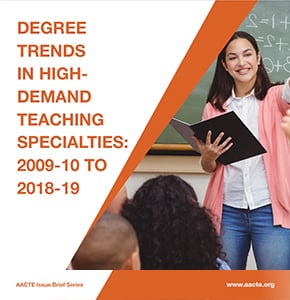
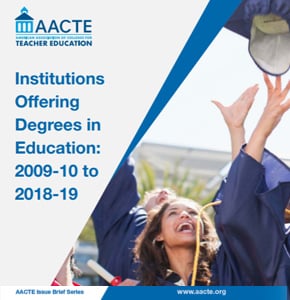
The American Association of Colleges for Teacher Education (AACTE) released today two new issue briefs, Institutions Offering Degrees in Education: 2009-10 to 2018-19 and Degree Trends in High-Demand Teaching Specialties: 2009-10 to 2018-19. The reports examine education trends through an analysis of the number of institutions awarding degrees in education and the imminent threat of increased teacher shortages , particularly in high-demand areas. The findings raise significant concerns about the nation’s future capacity to produce new teachers and other education professionals to meet the diverse needs of students, families, and communities.
The Institutions Offering Degrees in Education report describes the number of institutions awarding degrees in education from 2009-10 to 2018-19, and offers a table listing of institutions awarding any degree in education by state and institution type during this period. It reveals that, while the number of institutions offering degrees in education has been stable, the number of institutions with small programs, defined as awarding 30 or fewer degrees and certificates annually, rose by 21%. These institutions currently make up one-third of all colleges and universities awarding education degrees. Of critical importance is that the average number of education graduates across all institution types fell by 24% from 2009-10 to 2018-19.
16 Oct2020
By Deirdre Armitage
This article is part of a series on clinically rich teacher preparation in New York State, coordinated by Prepared To Teach at Bank Street College. The text is adapted from their latest report, Making Teacher Preparation Policy Work: Lessons From and For New York, and shared by the featured institution.
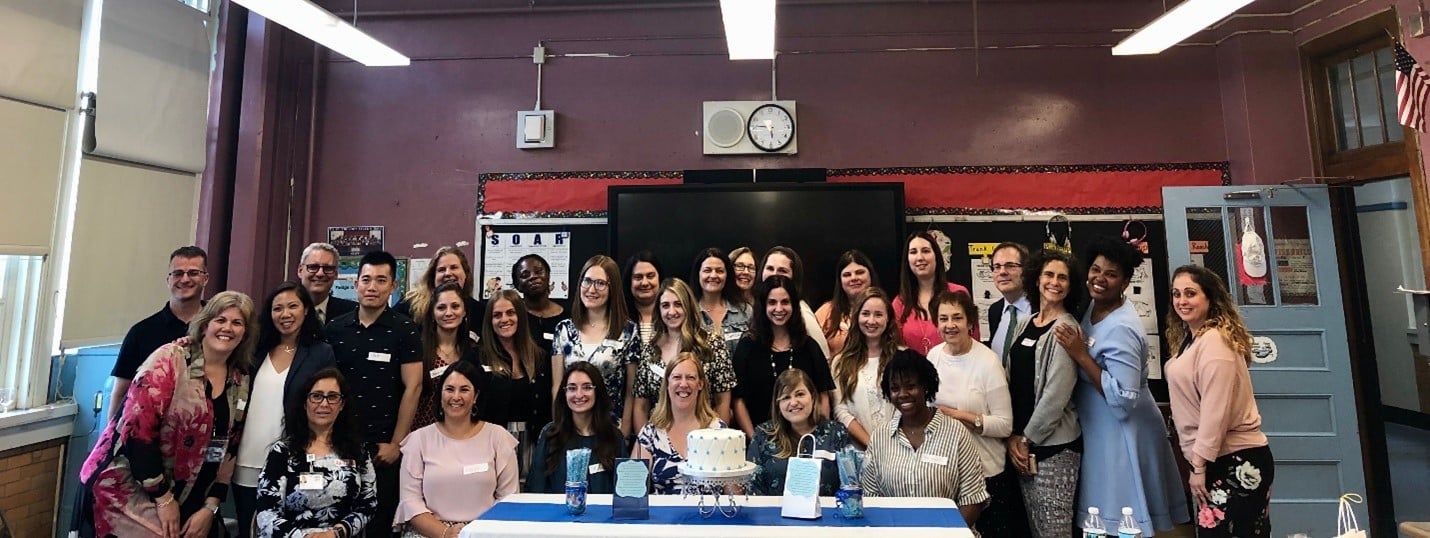
The College of Staten Island (CSI) enrolls many diverse first-generation college students. A number of these students support their families and themselves, working multiple jobs and limiting expenses while studying—making it impossible to pursue a traditional student teaching pathway that includes a semester of unpaid, full-time student teaching. Seeing that many students were effectively being excluded from teacher preparation, the College and its partner schools set out to create a teacher residency that paid students for their time spent in classrooms, providing an accessible path to a teaching career.
07 Oct2020
By Karen Hammerness, Julie Contino and Maritza McDonald
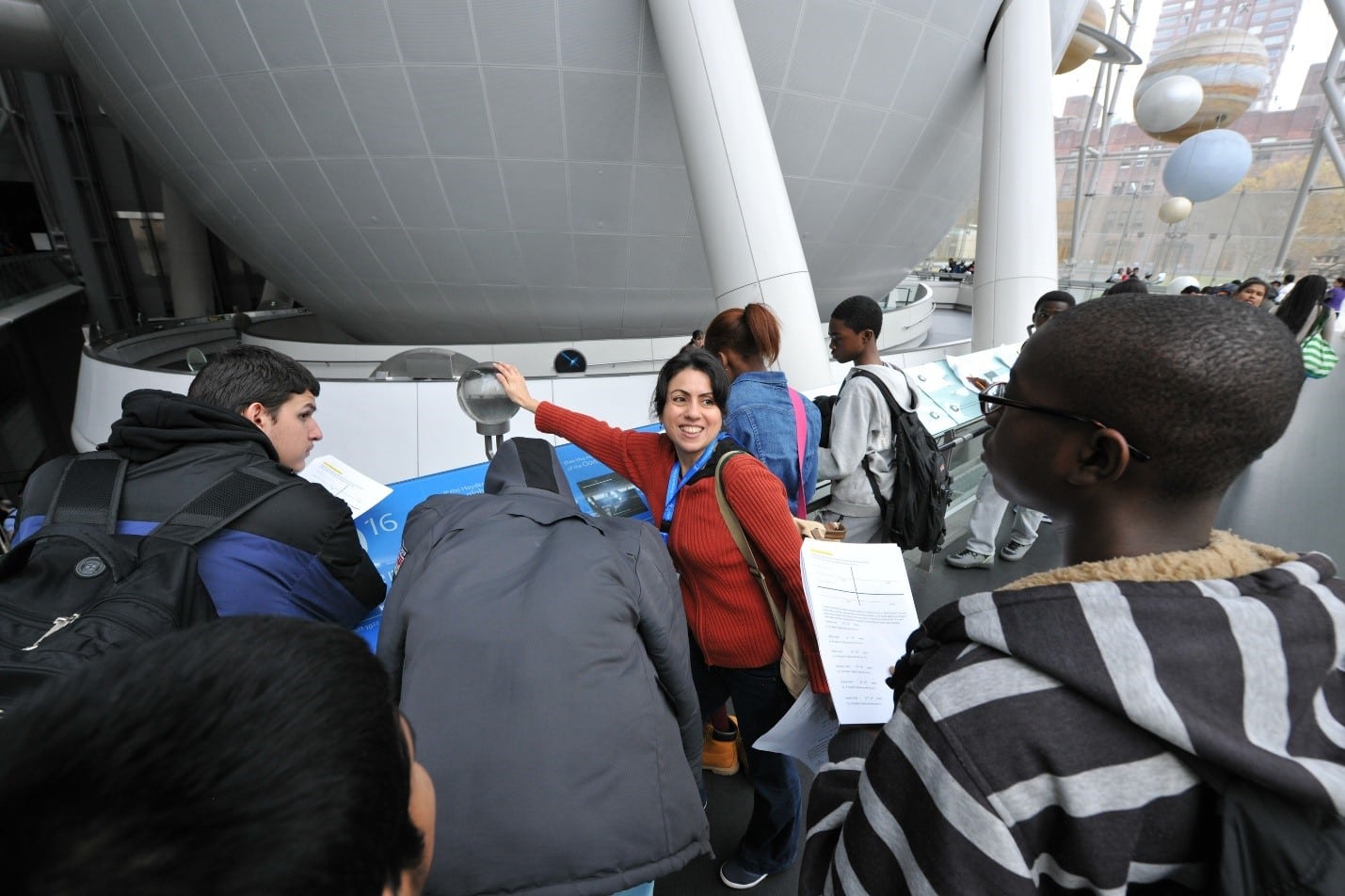
Photo Credit: Denis Finnin, AMNH
This article is part of a series on clinically rich teacher preparation in New York State, coordinated by Prepared To Teach at Bank Street College. The text is adapted from their latest report, Making Teacher Preparation Policy Work: Lessons From and For New York, and shared by the featured institution.
The American Museum of Natural History (AMNH) may be most well-known for its long history of scientific research, and for its expansive galleries featuring casts of dinosaurs, or dioramas from around the world, and the 94-foot long Blue Whale suspended in the Hall of Ocean Life. However, for just as long as the museum has been engaged in educating the public about scientific phenomena through visits, the museum has been supporting teachers and teaching. Since just after the museum opened in 1880, the museum offered lecture courses for teachers, broadening offerings by the 1920s. In the late 1930s, the museum offered a preparation program for teachers interested in using out-of-school learning experiences in their classrooms. Today, the museum offers a wide range of professional development opportunities for teachers in science, as well as works in partnership with cultural institutions around the city to support science teacher development.
04 Aug2020
By Nicole Dunn
 Higher education and PK-12 school systems around the country continue to persevere through the pandemic while the policies that structure the new school year continue to change day-to-day. Since the onset of COVID-19, our partners have observed how the pandemic has affected teacher and leadership preparation programs and are excited to share lessons learned. This August, join us for a “Back to School” webinar series with three of our strategic partners: EdPrepLab an initiative of the Learning Policy Institute (LPI) and Bank Street Graduate School of Education, International Society for Technology in Education (ISTE), and the National Board for Professional Teaching Standards, Accomplished Teaching, Learning and Schools (ATLAS) group. In each, we will discuss how to apply what was learned this past spring to the upcoming academic year within higher educator preparation programs.
Higher education and PK-12 school systems around the country continue to persevere through the pandemic while the policies that structure the new school year continue to change day-to-day. Since the onset of COVID-19, our partners have observed how the pandemic has affected teacher and leadership preparation programs and are excited to share lessons learned. This August, join us for a “Back to School” webinar series with three of our strategic partners: EdPrepLab an initiative of the Learning Policy Institute (LPI) and Bank Street Graduate School of Education, International Society for Technology in Education (ISTE), and the National Board for Professional Teaching Standards, Accomplished Teaching, Learning and Schools (ATLAS) group. In each, we will discuss how to apply what was learned this past spring to the upcoming academic year within higher educator preparation programs.
13 Jul2020
By Heather Howell
Experiencing disruptions to your elementary mathematics or science methods courses due to COVID-19? We may be able to help!
ETS is currently recruiting teacher educators who will be teaching elementary mathematics or science methods courses in the fall 2020 semester to participate in a new NSF-funded study (#2032179). The study will provide simulated teaching practice through the Mursion® virtual environment to pre-service elementary teachers (PSETs) enrolled in your methods course.
The simulated teaching tasks used in the study focus on leading argumentation-focused discussions in either mathematics or science at the fifth-grade level. Teacher educators selected to participate will incorporate one simulated teaching task into their course as an assignment for their PSETs and will agree to participate in surveys and focus group interviews reflecting on their experience.
For a more detailed description, please follow this link, where you will also be able to apply. Applications close July 27.
Heather Howell is a research scientist at ETS.
04 Jun2020
By Jerrica Thurman
AACTE is happy to announce the newest additions to its staff: Jacqueline Cantow, program coordinator, programs and professional learning; Katrina Norfleet, content strategist; Nicole Dunn, assistant director, programs and professional learning; and Weade James, director of development and research.
 Jacqueline Cantow
Jacqueline Cantow
Jackie Cantow is an experienced program coordinator with a demonstrated history of working in education and fundraising. Prior to joining AACTE, she worked with The AnBryce Foundation and Brandeis University. She holds a degree in political science and sociology from the George Washington University.
Cantow’s vision for AACTE is to advance the core values of diversity, equity, and inclusion. She will assist the Black and Hispanic/Latino Male Teachers Initiative Networked Improvement Community to increase the presence of these individuals within the field of education. One of her goals is to highlight the innovative work of this demographic and help promote best practices for recruiting and retaining these diverse teachers in the education community. She will also assist with the Special Education Networked Improvement Community to advance its research goals. Cantow joined AACTE in May 2020.
28 May2020
By Anna Arias, Brett Criswell, Joshua Ellis, Larry Escalada, Shelly Forsythe, Heather Johnson, Donna Mahar, Amy Palmeri, Margaret Parker and Jessica Riccio
COVID-19 challenges all of us in teacher education to reimagine how to prepare our candidates for the complexity of teaching when they cannot be placed in authentic classroom contexts. Our responses to this challenge will likely require us to stretch the “approximations of practice” that Grossman et al. (2009) described. One strategy that might offer us a means for executing this stretch is video analysis. However, for video analysis to be a meaningful approximation of practice, teacher educators need both useful video case resources and the tools to support candidates’ exploration of these cases.
A group of science teacher educators from across the country has been using the ATLAS library as our main video case resource and the Framework for Analyzing Video in Science Teacher Education (FAVSTE) as our tool for maximizing the learning from these cases. ATLAS has videos (generally 15 -20 minutes in duration) submitted by teachers applying for National Board certification, along with the commentary (Instructional Context, Planning, Analysis, Reflection) associated with the videos. This allows teacher candidates to both see the action occurring in actual classrooms and then read about the thinking of the teacher before and after the lesson that produced that action.
26 May2020
By Monika Jo
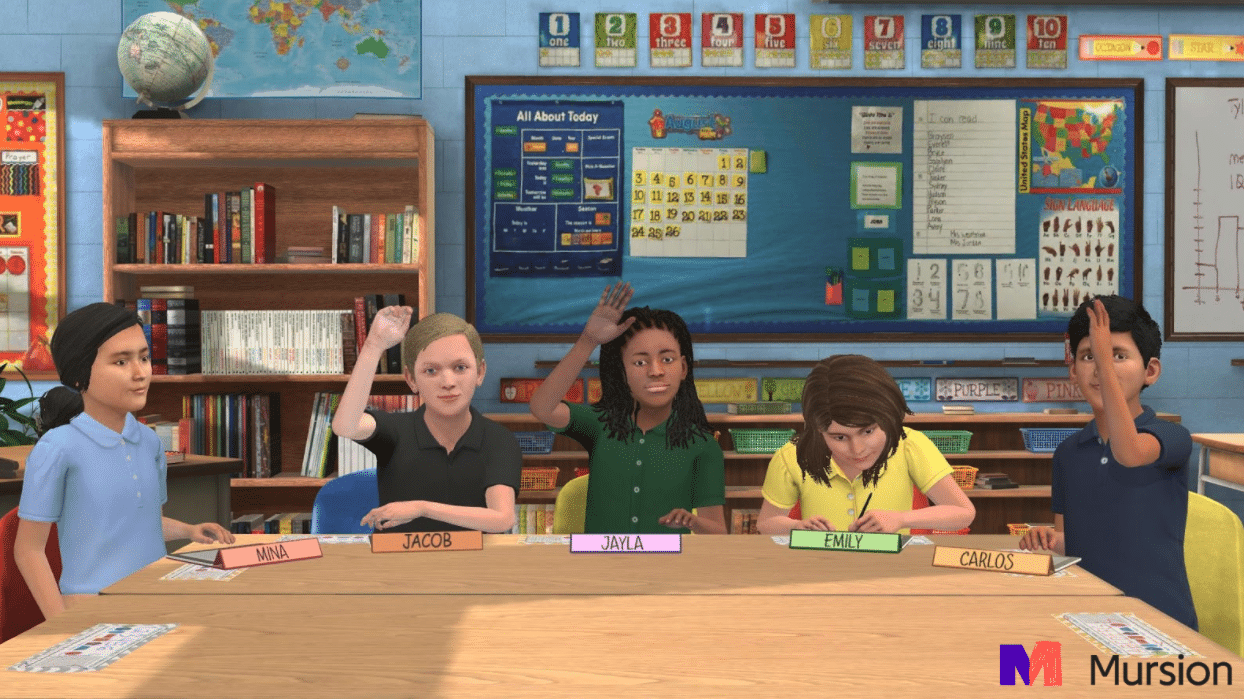 Would teachers find professional development via simulated classrooms useful? This was one of three questions that Toni M. Smith, principal researcher, and Rachel Garrett, senior researcher, from the American Institutes for Research (AIR), explored in the Simulated Instruction in Mathematics Professional Development (SIM PD) Study. The following are excerpts from a summary of their research findings and from what they shared at a May 14, 2020 online event hosted by Mursion, whose virtual reality learning platform was used in the study.
Would teachers find professional development via simulated classrooms useful? This was one of three questions that Toni M. Smith, principal researcher, and Rachel Garrett, senior researcher, from the American Institutes for Research (AIR), explored in the Simulated Instruction in Mathematics Professional Development (SIM PD) Study. The following are excerpts from a summary of their research findings and from what they shared at a May 14, 2020 online event hosted by Mursion, whose virtual reality learning platform was used in the study.
Funded by the Charles and Lynn Schusterman Family Foundation, SIM PD is a pilot of an exciting, new PD program being conducted by AIR. SIM PD offers opportunities for teachers in grades 4–7 to (a) learn about questioning strategies and facilitation of student discourse to promote engagement and understanding of math concepts and (b) practice implementing those approaches using a mixed-reality classroom.
They randomly assigned 16 partnering schools to either participate in SIM PD or continue with business-as-usual professional learning during the 2018-19 school year. They collected documentation of SIM PD activities during implementation and video-based observations of math lessons from both groups of teachers.
27 Apr2020
AACTE Responds to COVID-19
By Jacqueline Rodriguez

AACTE members across the country are seeking novel ways to approach clinical practice, observation hours, and practicum expectations for their teacher candidates in order to address the nation’s need for an excellent teaching workforce in our PK-12 schools during COVID-19. AACTE and CEEDAR will co-host a second Lunch and Learn focused on strategies for leveraging partnerships in innovative ways to facilitate new opportunities to learn May 1, 2020, 1:00-1:30 p.m. ET.
Education leaders from Ohio, including our AACTE Board Member and associate dean of Bowling Green State University (BGSU), Mary Murray, will provide examples of educator preparation faculty and district partnerships that are adapting instructional modalities for students with the help of teacher candidates. From early childhood to secondary content areas, including special education, candidates are supporting their district partners through the development of lessons, online tutoring, supporting parents in their navigation of distance learning, and direct instruction online.
Join us to learn how you might apply these practices in your own context. Register now for Just-in-Time Strategies for Leveraging EPP-LEA Partnerships.
12 Feb2020
By Renée A. Middleton
This article originally appeared in Education Week on February 12, and is reprinted with permission from the author and former AACTE Board Chair Renée A. Middleton.
To the Editor:
The Jan. 8 article, “Sure, We Teach History. But Do We Know Why It’s Important?” (Big Ideas special report), noted that 78% of educators surveyed believe the primary purpose of teaching history is “to prepare students to be active and informed citizens.” The article also said that understanding the present in historical context can help us “decide on the best course of action ahead.”
I would like to thank the author of this article, which focused on Japanese-Americans forced into prison camps after Pearl Harbor and the decades-later response from President Ronald Reagan and other Americans. History provides a foundation for action and affects how people perceive—and respond—to present-day horrors. All educators should take note.
In 2019, I traveled to Poland for a study tour of the Jewish Holocaust, which showed how far hate can go if left unchecked. My experience of the study tour reinforced the meaning of the Jewish rallying cry “never again.”
10 Feb2020
By Jerrica Thurman
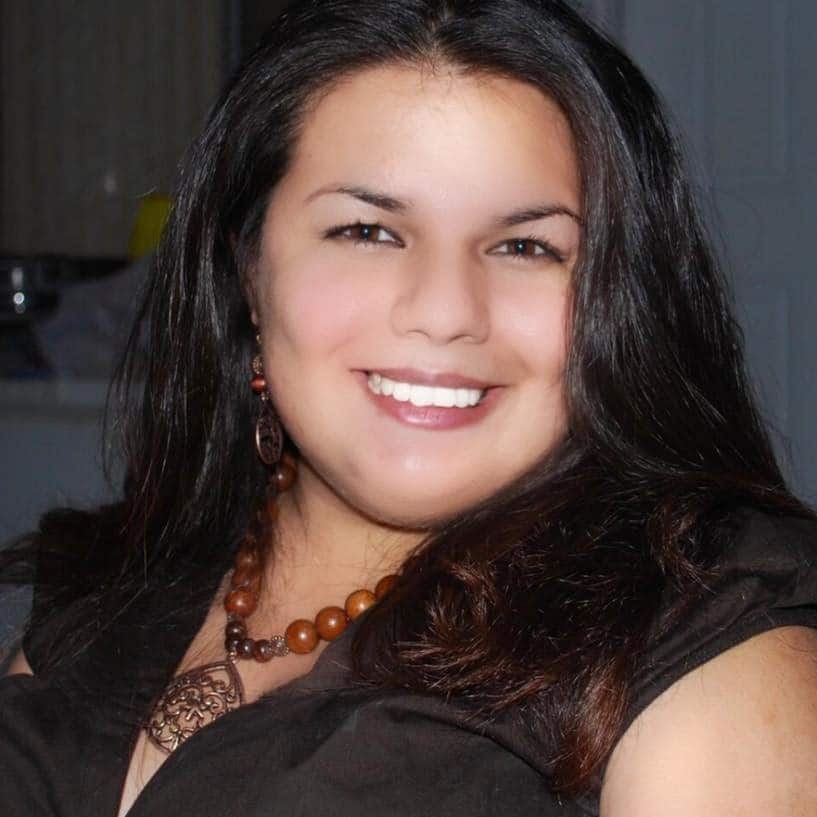 AACTE is delighted to announce Christina Restrepo Nazar, Ph.D. as the recipient of the 2020 AACTE Outstanding Dissertation Award for Youth as Teacher Educators: Supporting Preservice Teachers in the Developing Youth Centered, Equity-Oriented Science Teaching Practices. The author completed her dissertation for the Ph.D. at Michigan State University College of Education. She currently serves as assistant professor of K-12 science education in the Charter College of Education at California State University Los Angeles. She will be recognized formally with the award at the AACTE 72nd Annual Meeting, February 28 – March 1, in Atlanta, GA.
AACTE is delighted to announce Christina Restrepo Nazar, Ph.D. as the recipient of the 2020 AACTE Outstanding Dissertation Award for Youth as Teacher Educators: Supporting Preservice Teachers in the Developing Youth Centered, Equity-Oriented Science Teaching Practices. The author completed her dissertation for the Ph.D. at Michigan State University College of Education. She currently serves as assistant professor of K-12 science education in the Charter College of Education at California State University Los Angeles. She will be recognized formally with the award at the AACTE 72nd Annual Meeting, February 28 – March 1, in Atlanta, GA.
In her dissertation, Restrepo Nazar conducted three separate, but interrelated studies that examine the ways preservice teachers (PSTs) generatively developed youth-centered, equity-oriented pedagogical imaginaries in their methods courses and how they enacted these practice(s) in their field experiences. The purpose of this dissertation is to understand how and in what ways a science methods course can support PSTs in the critical uptake of youth (and community) knowledge(s) and practice(s) and how classroom communities in the field can shift/shape these enactments. In this work, Restrepo Nazar foregrounds youth counternarratives of the culture of power in science as a critical part of learning to teach science for PSTs—a study that has never been done before.
23 Jan2020
By Kim Chaudoin

This article originally appeared on the Lipscomb University website and is reprinted with permission.
More than 10,000 books are being distributed to children in high priority schools in Metro Nashville Public Schools and Murfreesboro City Schools through a partnership between Lipscomb University’s College of Education and Middle Tennessee State University as the result of a $50,000 grant from First Book.
Suze Gilbert, lead faculty for reading speciality in Lipscomb’s College of Education, and Katie Schrodt, assistant professor in MTSU’s Department of Elementary and Special Education, collaborated with nonprofits Read TO Succeed and Book’Em on this initiative. The grant provides 10,000 books to children and teachers in high priority schools in MNPS and Murfreesboro. In addition to the books, the grant also provides funding for professional development for teachers in those schools. Gilbert and Schrodt are hosting teachers from MNPS and Murfreesboro City schools on both the Lipscomb University and MTSU campuses throughout the winter months to engage in professional learning on Family Literacy Nights and Disciplinary Literacy. Each participating school will receive books to give to children during a Family Literacy Night to be held at each school and books to build classroom libraries.
10 Jan2020
By Ward Cummings
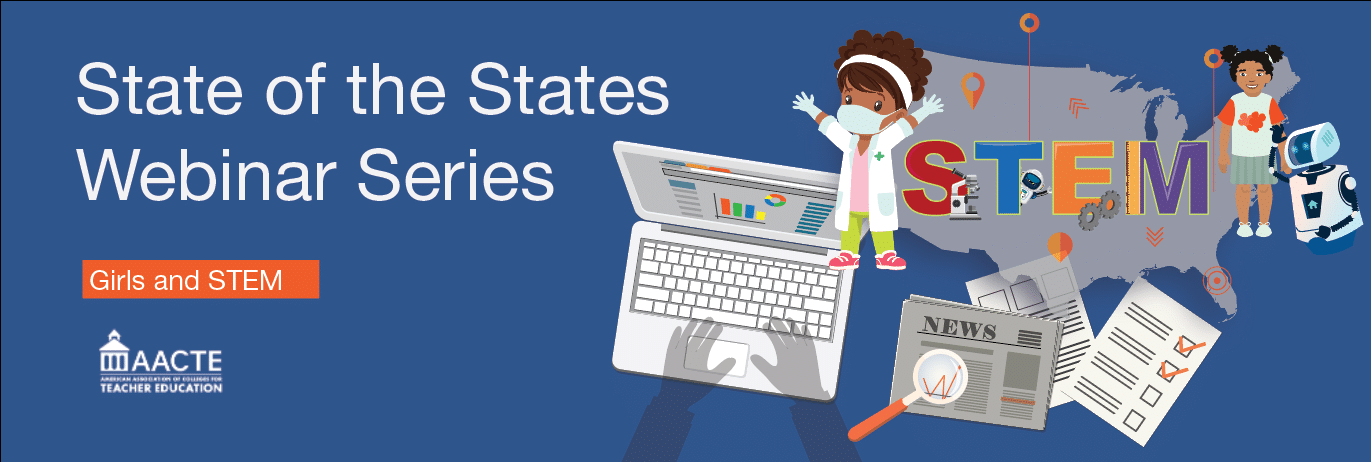
The subject of this month’s State of the States webinar is Girls and STEM. In 2009, four university researchers explored their suspicion that girls’ lagging behind boys in math achievement was substantially influenced by the math anxieties of their female elementary school teachers. The result of their research showed their suspicions to be correct and that some of the achievement gap was indeed a result of female teachers’ own apprehensions about math and their personal biases about the abilities of female students. The researchers found that female students can pick up on and even absorb negative thoughts from their teachers as early as kindergarten. Learn more.
Since that study was conducted, the achievement gap in math between boys and girls has narrowed, but still persists. The webinar will focus on what states are doing legislatively, with programs and with policy to eradicate the STEM achievement gap.
Register now for this members-only webinar:
State of the States: Girls and Stem
Wednesday, January 22
10:00 a.m. ET
06 Jan2020
Virtual Math Mentorship Project: Partnering Elementary Math Methods Course with Rural Title 1 School
By Jennie Carr and Tammy T. May
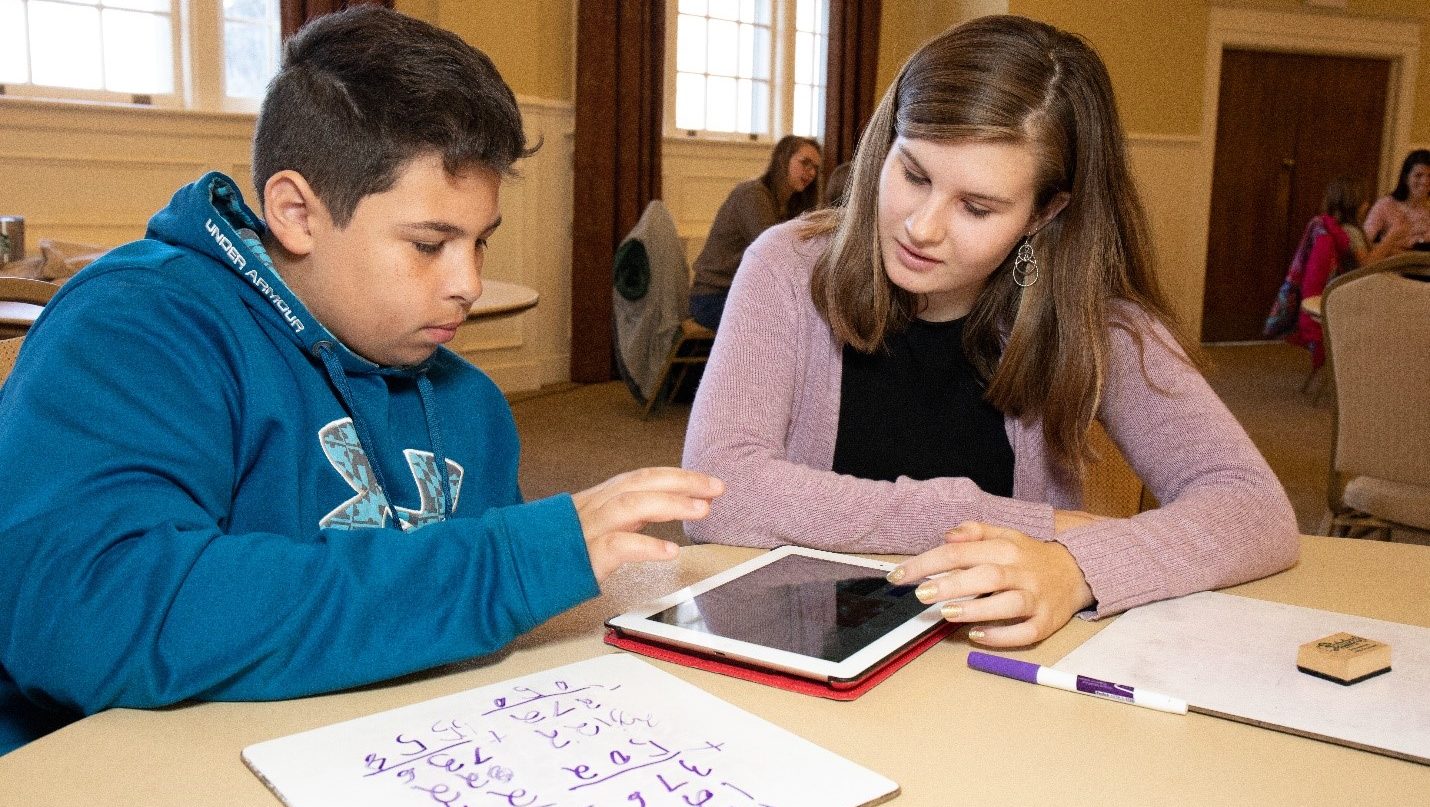
Photo Credit: Ben Wyrick
Ed Prep Matters features the “Revolutionizing Education” column to spotlight the many ways AACTE, member institutions, and partners are pioneering leading-edge research, models, strategies and programs that focus on the three core values outlined in the current AACTE strategic plan: Diversity, Equity, and Inclusion; Quality and impact; and Inquiry and Innovation.
This article was written by Jennie M. Carr of Bridgewater College and Tammy T. May of Rockingham County Public Schools.
Educator preparators are often seeking unique and meaningful experiences for their teacher candidates. With the knowledge that high quality mentoring relationships can demonstrate positive improvements in academic performance, attendance, feelings of self-confidence, resilience, perceived social acceptance, and relationships with others, we began working collaboratively to create a mutually beneficial math mentorship partnership between Bridgwater College and an elementary school in the Rockingham County Public School District (Coller & Kuo, 2014; Masters & Kreeger, 2017). The logistics of managing a traditional face-to-face mentoring experience was too difficult and there is no required field experience in the college’s elementary math methods course. Because online tools are typically utilized on college campuses and with the school district’s recent 1:1 Chromebook adoption, we crafted the virtual math mentorship (Hartun & Harvey, 2015).
Connecting the virtual math mentorship to teacher candidates’ capstone project in the math methods course was vital to its success. The eight-week project consisted of a teacher candidate field trip to the elementary school, two virtual Google Hangout sessions, four virtual Seesaw pen pal exchanges, and the creation of a personalized and interest-based differentiated math lesson for a fifth grade mentee, which was implemented during the students field trip to Bridgewater College.
13 Dec2019
By Laura Saylor
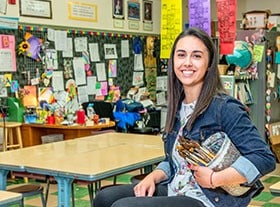 Two professors of education at Mount St. Joseph University, in partnership with the Ohio Department of Education and University of Cincinnati School Psychology program, have been awarded a $1.2 million federal grant to work with three local school districts on improving the literacy of students with or at risk for dyslexia.
Two professors of education at Mount St. Joseph University, in partnership with the Ohio Department of Education and University of Cincinnati School Psychology program, have been awarded a $1.2 million federal grant to work with three local school districts on improving the literacy of students with or at risk for dyslexia.
The U.S. Department of Education Model Demonstration Projects for Early Identification of Students with Dyslexia Grant was awarded to a team led by the Ohio Department of Education’s Office of Approaches to Teaching and Professional Learning in collaboration with Amy Murdoch and Wendy Strickler, professors of reading science at the Mount.











 Higher education and PK-12 school systems around the country continue to persevere through the pandemic while the policies that structure the new school year continue to change day-to-day. Since the onset of COVID-19, our partners have observed how the pandemic has affected teacher and leadership preparation programs and are excited to share lessons learned. This August, join us for a “Back to School” webinar series with three of our strategic partners: EdPrepLab an initiative of the Learning Policy Institute (LPI) and Bank Street Graduate School of Education, International Society for Technology in Education (ISTE), and the National Board for Professional Teaching Standards, Accomplished Teaching, Learning and Schools (ATLAS) group. In each, we will discuss how to apply what was learned this past spring to the upcoming academic year within higher educator preparation programs.
Higher education and PK-12 school systems around the country continue to persevere through the pandemic while the policies that structure the new school year continue to change day-to-day. Since the onset of COVID-19, our partners have observed how the pandemic has affected teacher and leadership preparation programs and are excited to share lessons learned. This August, join us for a “Back to School” webinar series with three of our strategic partners: EdPrepLab an initiative of the Learning Policy Institute (LPI) and Bank Street Graduate School of Education, International Society for Technology in Education (ISTE), and the National Board for Professional Teaching Standards, Accomplished Teaching, Learning and Schools (ATLAS) group. In each, we will discuss how to apply what was learned this past spring to the upcoming academic year within higher educator preparation programs. Jacqueline Cantow
Jacqueline Cantow Would teachers find professional development via simulated classrooms useful? This was one of three questions that Toni M. Smith, principal researcher, and Rachel Garrett, senior researcher, from the American Institutes for Research (AIR), explored in the Simulated Instruction in Mathematics Professional Development (SIM PD) Study. The following are excerpts from a summary of their research findings and from what they shared at a May 14, 2020 online event hosted by
Would teachers find professional development via simulated classrooms useful? This was one of three questions that Toni M. Smith, principal researcher, and Rachel Garrett, senior researcher, from the American Institutes for Research (AIR), explored in the Simulated Instruction in Mathematics Professional Development (SIM PD) Study. The following are excerpts from a summary of their research findings and from what they shared at a May 14, 2020 online event hosted by 
 AACTE is delighted to announce Christina Restrepo Nazar, Ph.D. as the recipient of the 2020 AACTE Outstanding Dissertation Award for Youth as Teacher Educators: Supporting Preservice Teachers in the Developing Youth Centered, Equity-Oriented Science Teaching Practices. The author completed her dissertation for the Ph.D. at Michigan State University College of Education. She currently serves as assistant professor of K-12 science education in the Charter College of Education at California State University Los Angeles. She will be recognized formally with the award at the
AACTE is delighted to announce Christina Restrepo Nazar, Ph.D. as the recipient of the 2020 AACTE Outstanding Dissertation Award for Youth as Teacher Educators: Supporting Preservice Teachers in the Developing Youth Centered, Equity-Oriented Science Teaching Practices. The author completed her dissertation for the Ph.D. at Michigan State University College of Education. She currently serves as assistant professor of K-12 science education in the Charter College of Education at California State University Los Angeles. She will be recognized formally with the award at the 


 Two professors of education at Mount St. Joseph University, in partnership with the Ohio Department of Education and University of Cincinnati School Psychology program, have been awarded a $1.2 million federal grant to work with three local school districts on improving the literacy of students with or at risk for dyslexia.
Two professors of education at Mount St. Joseph University, in partnership with the Ohio Department of Education and University of Cincinnati School Psychology program, have been awarded a $1.2 million federal grant to work with three local school districts on improving the literacy of students with or at risk for dyslexia.